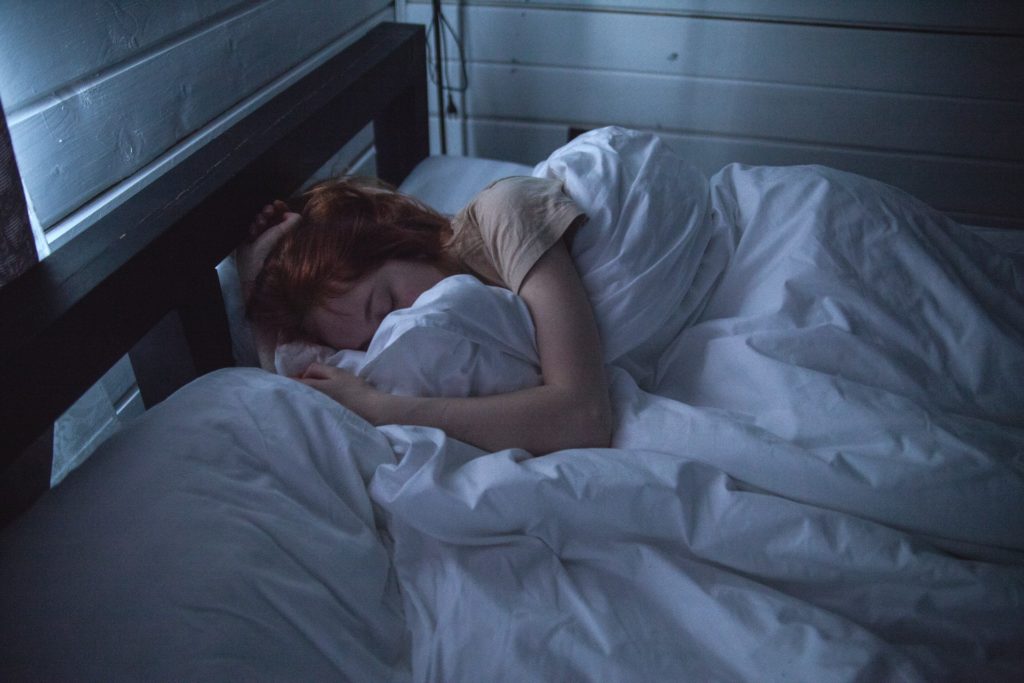If you suffer from poor sleep, then everything in your life will be thrown off. When this issue becomes so severe that it is affecting your day to day life, doctors consider that you suffer from sleep problems. Not all sleep problems are identical. In this article we will look at the effects and impacts of this debilitating condition, the different kinds of sleep problems, and ways that you can treat it.

Negative Impacts of Sleeping Problems
Sleep problems can create serious mental health issues. Some of these include the following:
– Negative, anxious, or depressed thoughts that become harder to rationalize
– Feelings of isolation and loneliness that keep you from engaging in normal social activities
– Psychotic episodes that are made worse in people who already suffer from psychosis, paranoia, mania, and more
These kinds of sleeping problems point to significantly deteriorating mental health.
How Do Mental Health Problems Affect Your Sleep?
Mental health problems impact your sleep in a number of critical ways. Anxiety easily interferes with sleep. Ally Olson from Vision Bedding (https://www.visionbedding.com) explains that people with anxiety often don’t sleep well and that they should stay out of their bedroom until they naturally feel sleepy rather than attempting to force themselves to fall asleep.
Depression causes you to oversleep. This can be throughout the day or in the morning. Depressing thoughts can also lead to insomnia ironically.
PTSD Post Traumatic Stress Disorder creates night terrors and nightmares that disturb your sleep. If they are severe enough they can also cause insomnia. When you suffer from psychosis or paranoia, you might see or hear disturbing things and thoughts that make it difficult (if not impossible) to fall into a deep, relaxing sleep.
Mania leads to the opposite problems, creating wild elation and energetic feelings. These will deceive your body and mind into thinking it is not tired or does not wish to sleep. Such racing thoughts often lead to insomnia.
If you are taking psychiatric drugs, there are often side effects like disturbed sleep or insomnia. You might not have problems while on the medications but instead after you quit taking them. You might also suffer from oversleeping with these medications and in the aftermath of them.
Remedies To Help With Sleeping Issues
The good news is that there are a number of remedies you can attempt to restore your broken sleep. We look at these helpful solutions next.
Set a Routine
It helps to go to bed and rise at about the same time each day. Yet you should not lie down until you are tired enough to sleep directly. Set an alarm to get up consistently. You might be fewer hours in the bed yet still sleep more hours this way.
Ensure Where You Sleep Is Comfortable
It can help to play with your noise, light, and temperature levels to decide what feels best to you personally. In general, dark, cool, and quiet surroundings make sleep easier. This can vary from one individual to the next though. Some might benefit from calm and quiet music playing in the background instead.
Relax Before Bed
Routines for relaxing aid many individuals in sleeping. Here are a few popular and effective ones:
– Breathing exercises
– Calming activities like a bath or relaxing music
– Muscle relaxation techniques like Progressive Muscle Relaxation
– Meditation or prayer
– Visualizing a peaceful landscape or scene
Maintain A Sleep Diary
Sleep diaries allow you to jot down important information about your sleeping habits to better visualize your sleep issues. This is useful if you go see a professional sleep doctor, who may be able to determine what is causing your problems from the notes.
Take Some Time Away From Tech
Studies have revealed that the bright screens from smart phones and laptops interfere with sleep. Doctors recommend an hour away from them before bed to help your mind relax.
Address Worries and Stresses
What is it in your own life that creates stress? You could talk with your friends about the feelings and thoughts that are interfering with your sleep. After you understand what is interrupting your sleep, you can attempt to discuss your stresses with your employer or learn methods of better managing your anxiety.
Investigate Any Physical Cause
Sleep can suffer from sickness, pain, and physical problems you ignore consciously. You can go to see your GP to get tests done. If your partner is snoring or you need to switch to the other side of your bed to restore your sleep, try to resolve these issues.
Adjust Your Exercise, Food, And Drink
Even a half an hour walking outside per day or some basic invigorating housework or gardening will help to exert your body to feel tired. Sleep can also be disturbed by alcohol, caffeine, and sugar from food. In the short term they might help, but longer term they interrupt sleep processes.
Investigate Your Medications
Today’s wide range of medications, especially those treating mental health, can impact sleep. Discuss this with your GP to find alternative medicines. There are often substitutes available that do not impact sleep habits.
Discuss Treatment Options
It is a good idea to discuss your sleep problems and any available treatments with your mental health professional or doctor. Two possibilities include the following ideas:
– Cognitive Behavioral Therapy (CBT) for Insomnia – this useful series of practical discussions can assist you in recognizing and changing up any thoughts and patterns that are unhelpful as well as bad habits surrounding your sleep
– Sleeping medications – include both sleeping pills and stronger SSRI anti-depressants useful for helping with shorter-term insomnia. They can break poor sleep cycles to help you recover your former sound sleeping patterns
Not any one remedy will work for all individuals. Some of the methods above may work for you in one bout of insomnia but not another. Your body changes all the time. The key is to keep trying alternatives until you discover what will work for your sleep cycle again.








